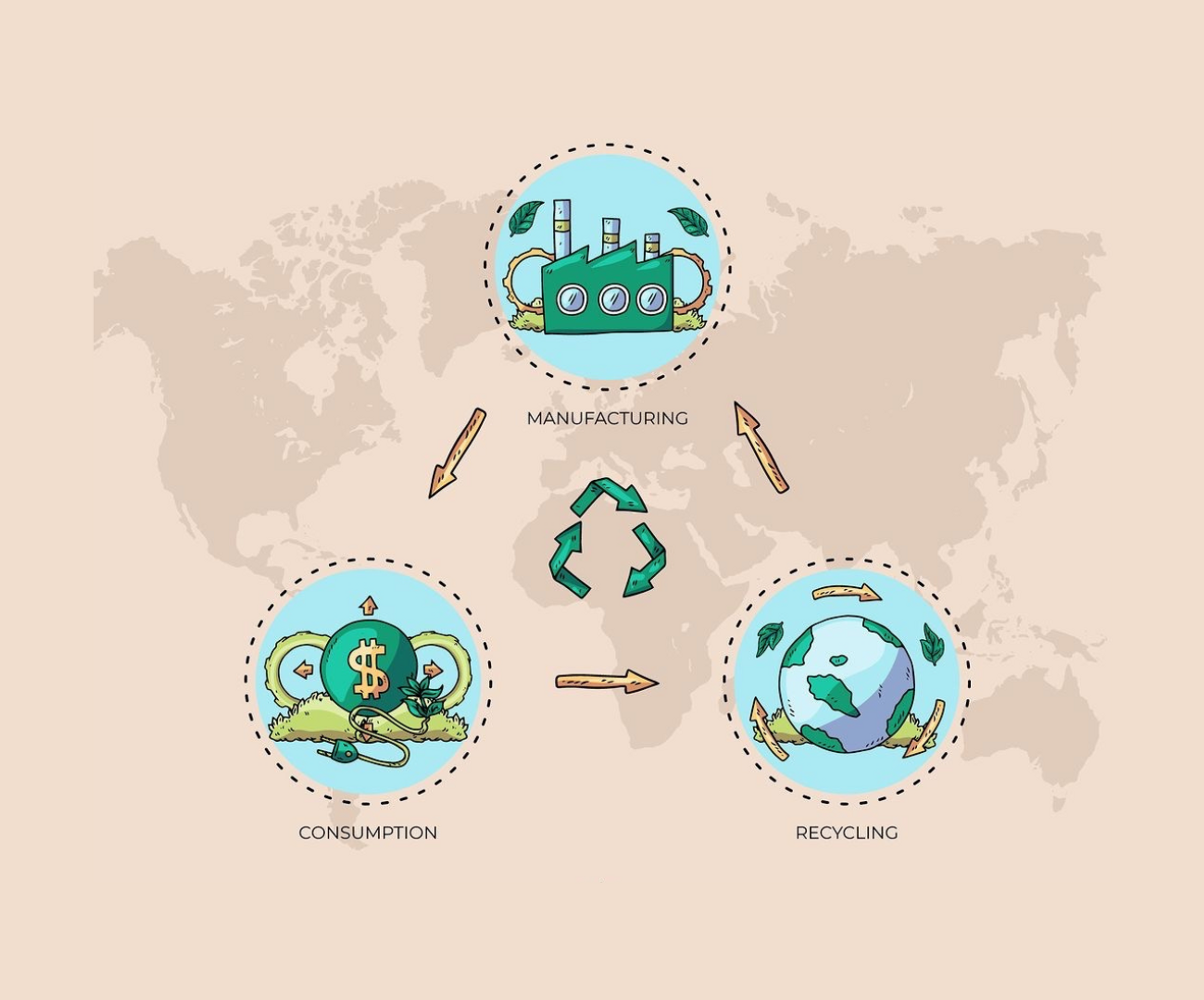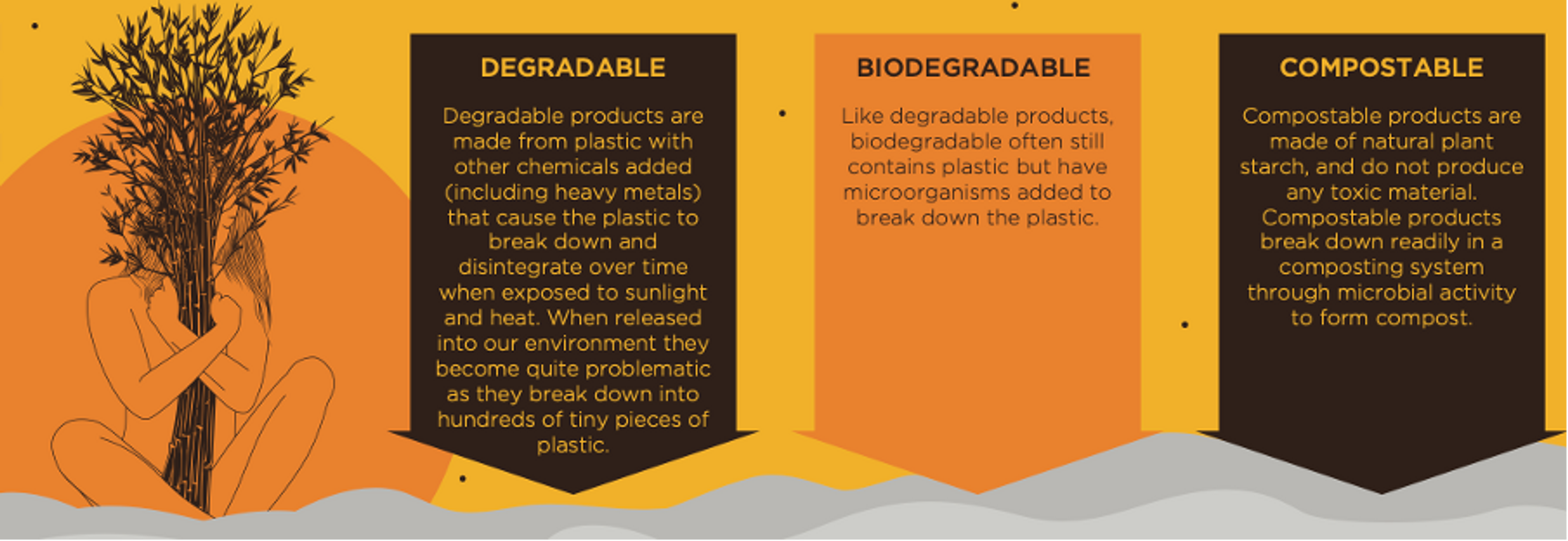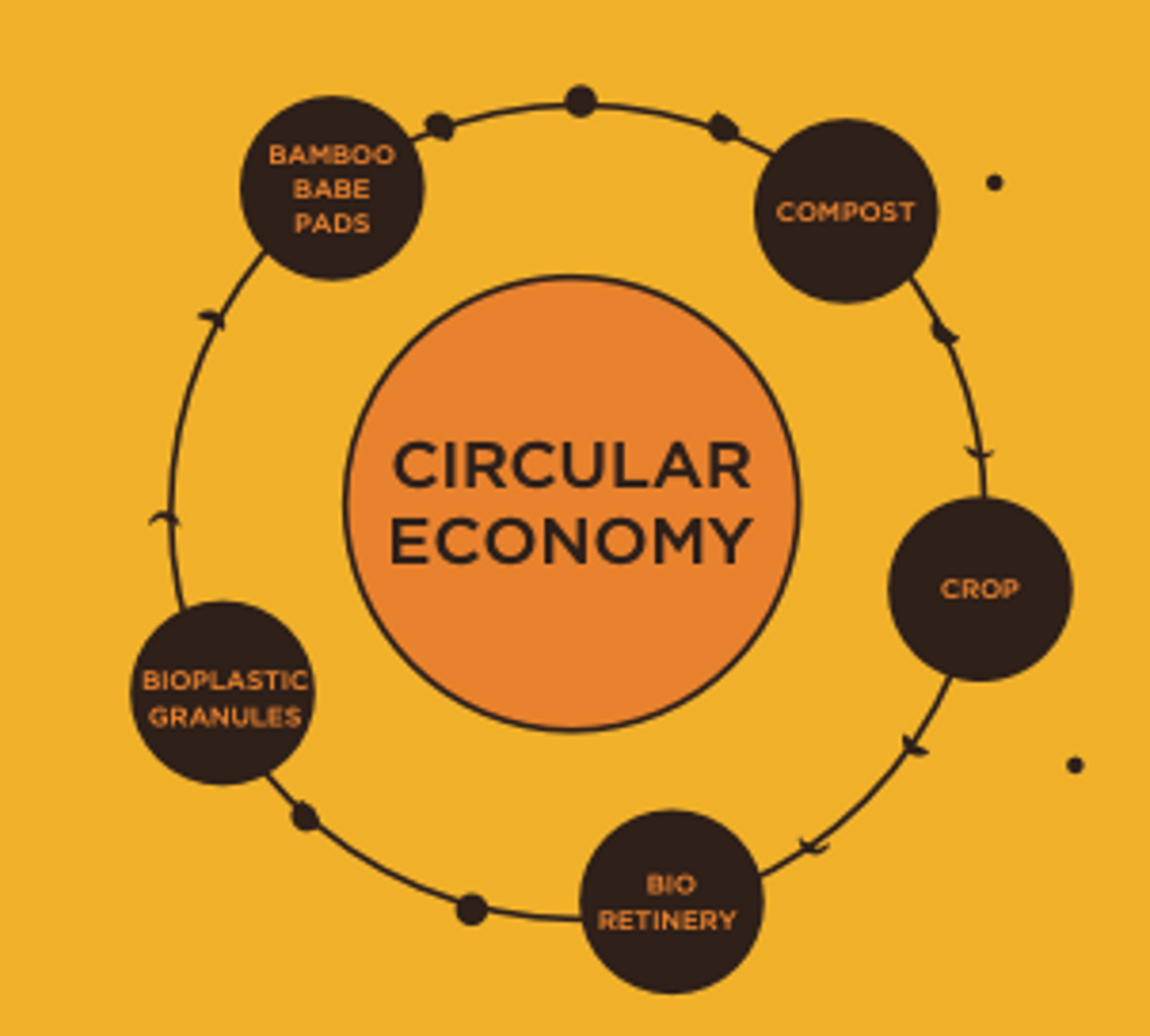Circular economy & the difference between degradable, biodegradable and compostable.
4 mins read

Did you know there is a difference between Degradable, Biodegradable and Compostable?

Degradable: Degradable products are made from plastic with other chemicals added (including heavy metals) that cause the plastic to break down and disintegrate over time when exposed to sunlight and heat. When released into our environment, they become problematic as they break down into hundreds of tiny pieces of plastic.
Biodegradable: Like degradable products, biodegradable often still contains plastic but have microorganisms added to break down the plastic.
Compostable: Compostable products are made of natural plant starch and do not produce any toxic material. Compostable; products break down readily in a composting system through microbial activity to form compost.

Circular Economy is a change to the model in which resources are mined, made into products, and then become waste.
A circular economy reduces material use, redesigns materials, products, and services to be less resource intensive, and recaptures “waste” as a resource to manufacture new materials and products.
Circularity is embraced within the sustainable materials management approach and is an essential part of slowing climate change.
Published on 19 December 2022 by:

Khyati Dave
Founder
Passionate about sustainability, healthy living and all things natural.
